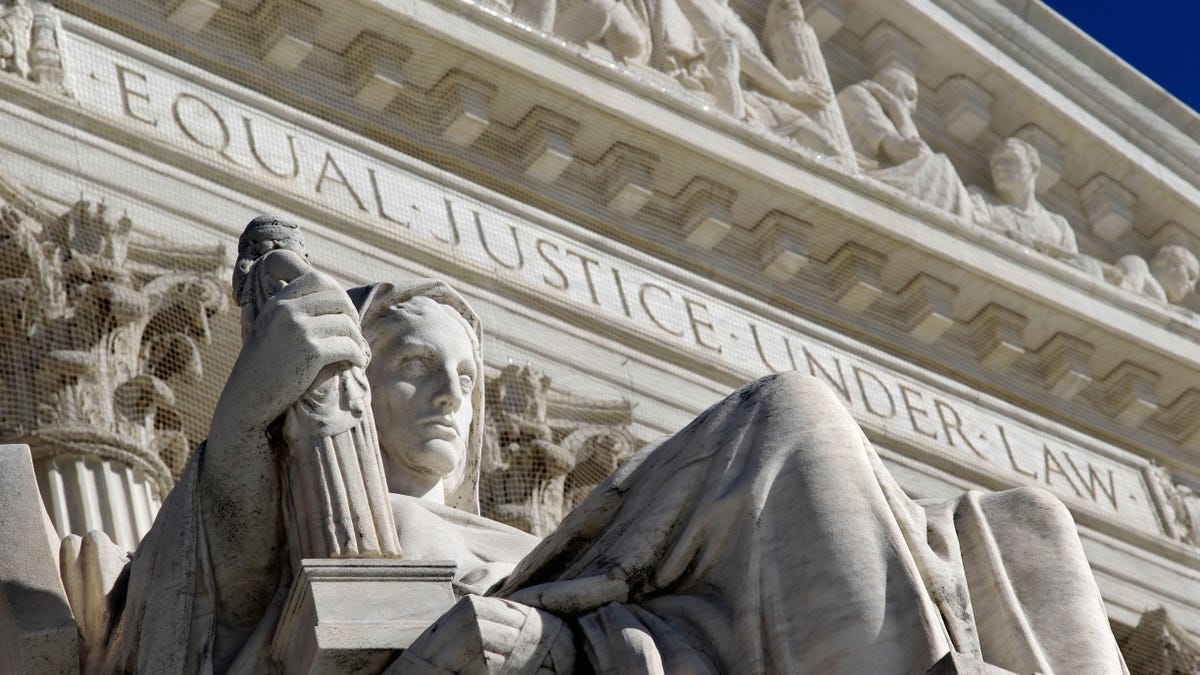
A detail of the West Facade of the U.S. Supreme Court is seen in Washington, Monday, March 7, 2011. (AP) (AP2011)
The Supreme Court has sided unanimously with a church sued for firing an employee on religious grounds, issuing an opinion on Wednesday that religious employers can keep the government out of hiring and firing decisions.
In the case of Hosanna-Tabor v. EEOC, Cheryl Perich, a "called" teacher, argued that the Hosanna-Tabor Evangelical Lutheran Church and School of Redford, Mich., had discriminated against her under the Americans With Disabilities Act by refusing to reinstate her to her job after she took leave for narcolepsy.
But the high court found that Perich's was properly classified as a "minister," meaning she falls within the "ministerial exemption" from many employment laws.
"Because Perich was a minister within the meaning of the exception, the First Amendment requires dismissal of this employment discrimination suit against her religious employer," reads the ruling written by Chief Justice John Roberts. "The EEOC and Perich originally sought an order reinstating Perich to her former position as a called teacher. By requiring the Church to accept a minister it did not want, such an order would have plainly violated the Church's freedom under the Religion Clauses to select its own ministers. ...
"The exception ... ensures that the authority to select and control who will minister to the faithful is the church's alone," the ruling reads.
Roberts added that this particular case is based on the ministerial exception's use in dismissing the discrimination claim but does not bar other types of suits alleging breach of contract or "tortious conduct" by religious employers. The applicability of the exception to other circumstances would be dealt with separately "if and when they arise," he wrote.
The high court's decision overturned an earlier decision by the 6th U.S. Circuit Court of Appeals.












































